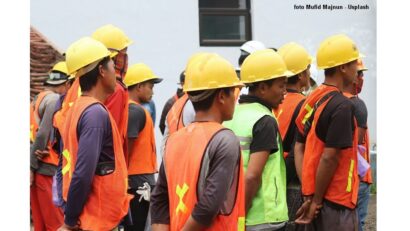Emigrants from and immigrants to Romania
Official statistics show that 3.4 million Romanians have left Romania

Christine Leșcu, 14.03.2018, 14:13
According to official statistics carried by the press recently, from 2007 to 2017, 3.4 million Romanians left this country, accounting for about 17% of the population. Most of them have left for more than one year in countries which they deem more attractive from an economic point of view. According to Social Monitor, a sociological project of the Friedrich Ebert Foundation in Romania, in 2017 almost 2.5 million Romanians were living abroad.
Victoria Stoiciu, programme manager at the Friedrich Ebert Foundation, has more details: ”The statistics refer to the 2003-2017 period. On the one hand, the document points to the number of Romanians who went abroad for more than one year and on the other, to the upward trend of emigration. The figures do not cover seasonal workers, those Romanians working abroad for three, six or eight months a year. They go abroad either to pick strawberries or to work in constructions. If we take them into consideration too, the number of Romanians leaving the country is much higher, standing at over 3 million.”
This situation makes Romania comparable to one of the countries confronted with a tough and long civil war, namely Syria. Victoria Stoiciu explains: “Romania ranks second in the world after Syria, in terms of the Diaspora growth rate, not as regards the number of migrants or the percentage of the population they represent. The rate at which Romanians left the country ranks us second after Syria. That is disquieting because since 2000, Romania has reported economic growth, though. So, we must analyze the growth model. How is economic growth felt and distributed among the population given that the rate at which Romanians left the country places it second after Syria, a country devastated by civil war?”
Those who leave the country are mostly people aged between 25 and 38, a category that is very important to Romania’s economy. They account for around 20% of the Romanian migrants. A lot of skilled workers from such areas as constructions or people with high qualification such as physicians or IT experts also leave Romania. Under the circumstances, they leave a void on the labor market, which for the time being, has not been covered yet.
What about the migrants coming to Romania? According to the General Inspectorate for Immigration, in late 2017, there were around 67,000 foreigners from third countries, including people with international protection, that is refugees. The latter included over 800 people who came to Romania through the EU Refugee Relocation Mechanism. Also last year, there were 4,820 asylum seeking applications, a larger number than the average 1,500 applications in previous years. Who are the people from third countries who settled in Romania or sought asylum and why did they choose Romania? Generally, they are men who once they got the refugee status or international protection in Romania can bring their family over. Moreover, family reunification or reunification with a family member who has already settled here is the reason why many people come from third countries to Romania. However, there is another reason too which such people have invoked of late: the fear of persecution or generalized violence in their native countries.
Foreigners have also come to Romania to get a job. Luciana Lazarescu, an expert in migration, explains: “There are 5,900 people with a work permit in Romania at present. They are nationals from third countries. In 2017, most of the work permits were given to nationals from Vietnam to work in the naval industry, as well as to nationals from Turkey, China and Serbia. The jobs in greatest demand for which work permits were given are those of welder, locksmith in metallic and naval constructions, restoration carpenter, mainly qualified jobs in the naval industry.”
Admitting that for many refugees, Romania is not a destination country, an attractive country like West European countries, Luciana Lazarescu refers to a government programme for the insertion of people who have the right to reside in Romania: “There is a government programme for the integration of people with international protection; it includes a package of measures facilitating the foreigners’ integration into society, in the labor market and their adaptation to customs and the institutional system in Romania. The programme includes a Romanian language course and cultural orientation; various NGOs also offer other services targeting those categories of foreigners. A delicate question is the way in which the institutions involved in that programme collaborate and assume that task.”
Given the small number of foreigners who have the right to settle in Romania and the lack of policies aiming to bring Romanians back home, what can be done to do away with the shortage of labor force?
Victoria Stoiciu is back at the microphone: “Attracting immigrants is easy to say but hard to do, because Romania is not attractive for them. Since a migrant or refugee gets a EU visa, why should he or she settle in Romania instead of going to work in Germany, France of Belgium where wages are much higher? At the same time, it isn’t easy to make Romanians come back home. Ultimately, it’s all about wages. The state has the minimum wage as an instrument, which is now 2.5 times higher than in 2011, but the private sector should also adapt and increase wages. Sometimes, to do that, companies should reduce their profit and even be wound up. So, the solution isn’t simple at all.”






























